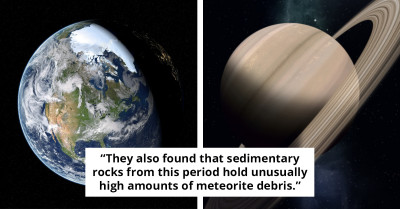Scientist Discovers Earth’s Oldest Water — Then Takes a Sip
Professor Barbara Sherwood Lollar, a geologist from the University of Toronto, led a groundbreaking expedition in 2016 deep into the Kidd Creek Mine in Ontario, Canada. There, nearly three kilometers beneath the surface, her team discovered a pocket of ancient water flowing steadily through the rock — water that hadn’t seen the light of day for up to 2.6 billion years.
Tests dated the water at between 1.5 and 2.6 billion years old, making it the oldest ever discovered on our planet. “When people imagine ancient water, they usually think of microscopic droplets trapped in crystals or tiny bubbles locked in rock,” said Prof Sherwood Lollar. “But this was different. The water was flowing — and not in a trickle, either. We’re talking litres per minute.”
Naturally, one question lingered in the air: What does water that old actually taste like?
So, she took a sip.
The verdict? “Very salty and bitter,” she said. “Much saltier than seawater.” That intense salinity, while not exactly refreshing, was actually a good sign. Older water tends to concentrate salts and minerals over time, so the saltiness served as further confirmation of its age.
As strange as it may sound, tasting rocks and groundwater isn’t unusual for geologists. “If you’re a geologist who works with rocks, you’ve probably licked a lot of rocks,” Sherwood Lollar joked, offering a glimpse into the fieldwork quirks of earth science.
But the discovery wasn’t just about satisfying scientific curiosity (or thirst). It also revealed something even more astonishing: signs of ancient life.
By analyzing the chemical makeup of the water, particularly the presence of sulfate and other dissolved salts, Sherwood Lollar’s team found strong evidence that microbial life once thrived in this underground ecosystem. These weren't organisms that popped in and out over a few years — the chemical signatures suggest microbial communities lived, adapted, and evolved down there over geological timeframes.
“We were able to show that the chemical signals in the fluid had to be produced biologically,” she explained. “And not just overnight. The microbes that created this signature must have been part of that system for millions — maybe billions — of years.”
Remarkably, drinking the water didn’t trigger any science-fiction-style side effects. No alien mutations. No Jurassic flashbacks. Just a milestone moment in Earth science, confirming not only the age of the water but offering rare insight into life’s deep history.
Professor Barbara Sherwood Lollar

“If you’re a geologist who works with rocks, you’ve probably licked a lot of rocks,” Sherwood Lollar joked, offering a glimpse into the fieldwork quirks of earth science.
The findings were published in Nature in 2016 and continue to fuel research into subsurface ecosystems, ancient Earth environments, and even the possibility of life in similar conditions on other planets like Mars.
Sometimes, to understand Earth’s deepest secrets, you just have to dig deep — and take a brave sip.




